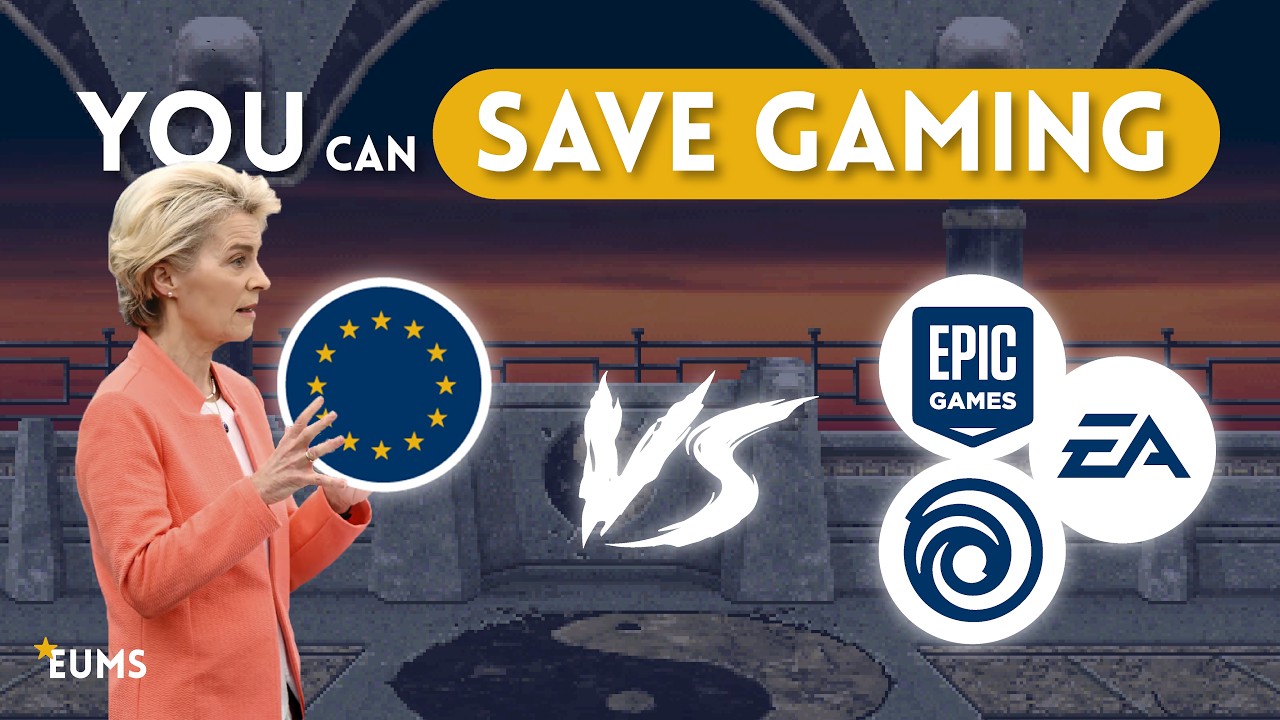This is where you can vote:
https://eci.ec.europa.eu/045/public/#/screen/homeCongratulations Sweden, Finland and Poland. You’ve won the vote race.
deleted by creator
First, make sure you fully understand what exactly you’d be supporting: https://youtu.be/ioqSvLqB46Y
He certainly doesn’t understand it.
You don’t understand what you are talking about.
Ok, I’ll bite.
First off, thanks for sharing Louis’ video, I just finished watching it. Not really sure how it was supposed to reinforce your statement, Louis had a good take that actually echoed a lot of the same points Jason was trying to make.
I’m not against the intent behind the initiative, to be clear. Frankly, neither is Jason if you pay attention to what he says in his videos - he just doesn’t agree with some of the ways they’re going about it.
My concerns stem from wanting the initiative to have the best chance of success if it does end up grabbing traction. Like Jason said, if we’re going to start this much-needed conversation, lets make sure the language being used is precise, well defined, and calls attention to the source of the problem. Yeah, the initiative might be EU-only right now, but once the conversation starts, it can quickly and easily become a global discussion.
In my opinion, some of the language being used for the initiative (and by many of its more vocal supporters) runs the risk of being tragically misinterpreted as bunch of babies that want to throw a public fit because someone took their 10yr old bottle away and it’s just not faaaair, rather than appearing like a level headed collective with strong talking points fit for adult discussion in a global forum.
I agree with both Jason and Louis that one of the most intrinsic faults with the current state of the gaming industry, that absolutely must be addressed, is the distinct lack of clear and obvious definitions - in both marketing and at the point of sale - as to whether a transaction will result in you receiving a copy of a game which you will then own in perpetuity, or merely a license to access a game during the finite course of its existence. Right now, that’s nearly impossible to determine at a glance, which is not OK.
I do consider live service games to be finite. Aside from it being an impossible task, it simply does not make sense to expect, let alone demand, that any company should indefinitely sustain even a fraction of the infrastructure required for games like WoW, Guild Wars, or FF after they’ve obviously run their course and begun idling with an average active player count in the double-digits for months on end.
That said, I also believe that (in certain cases) it is not unreasonable to ask studios/publishers to facilitate the release of components (server binaries, source code, etc) that would enable enthusiast communities to continue enjoying the game by hosting private servers at the cost of their own time, effort, and resources. It’s highly unlikely those instances would ever be able to replicate the glory days when the game was at its peak, but who cares? I had tons fun on private WoW servers back in the day, and got to enjoy a lot of creative changes and additions to the base game from hobbyist developers.
Most importantly, I firmly believe that games like The Crew should not exist. Which is to say, wolves in sheeps clothing - aka live service games masquerading as single player games with ‘optional’ multiplayer (same goes for the whole ‘always online’ concept that so many single player games have started to adopt). If a game has a single player component in any fashion - it should absolutely be considered a “possession” and continue to function offline, indefinitely, regardless of what happens to the online components it might have shipped with.
The intent of my original comment was to encourage the consideration and evaluation of multiple perspectives on such an important subject, maybe spark some thoughtful conversation, and have an opportunity to learn from your perspectives as well. I won’t be making that mistake 'round these parts again though, holy shit.
It’s pretty clear Jason here doesn’t fully grasp how these initiatives work.
Watch the actual video. He nailed it on the head just whats wrong with the initiative and made a second video going into more detail how such an initiative not only doesn’t do what its stated to do, but could maliciously be exploited by bad actors legally can profit if companies are forced to give up binaries.
If you’re against games as a service model… Then just don’t buy those games. If you’re against single player games having required online, this initiative doesn’t solve that issue in the slightest.
I’ve watched both videos and the live streams he took down already. I also think he doesn’t get how the initiative phase is specifically meant to be broad.
Effective Initiatives that result in meaningful laws the public wanted are not broad. They should have a laser focus on the EXACT issue the public wants dealt with. No ambiguity, no room for misinterpretation from legislators and politicians and definitely no room for lobbyists and interested third parties to twist and push the resolution to something that doesn’t align with what the public signed on.
If the EU picked this up and tailored it into a law, there’s a very good if not entirely likely chance they would just legislate that games-as-service must stay active for XX amount of years before binaries or some other tool is released so others can host their own private server. This doesn’t address the core concerns people are claiming they have, such as just having offline singleplayer play or cutting back on games as service options, and still leaves in all the loopholes that malicious parties could use to attack and devalue software and force it to early sunset so they can profit without having to pay the original developer of said software.
yeah sorry, but that guy doesn’t know what he’s talking about.







